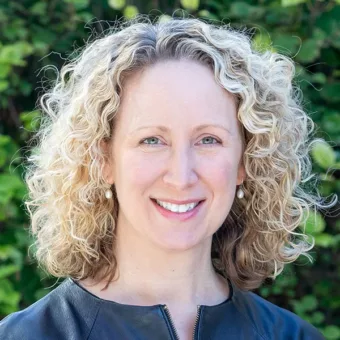Amy H. Kind, MD, PhD is the executive director of the Wisconsin Partnership Program at the University of Wisconsin School of Medicine and Public Health. She is also the inaugural associate dean for social health sciences and programs, professor of medicine, and the founding director of the University of Wisconsin Center for Health Disparities Research. Dr. Kind is board certified as an internist and geriatrician.
As Executive Director of the Wisconsin Partnership Program, Dr. Kind provides strategic leadership to advance the mission and goals of the Wisconsin Partnership Program. She oversees the administration and management of the Wisconsin Partnership Program’s grant programs in pursuit of novel ideas, interventions and solutions to address health challenges and positively impact health in Wisconsin.
In this role, Dr. Kind also fosters collaborations with campus and community leaders to advance innovative research and education programs and create community partnerships to improve health and advance health equity in Wisconsin.
Dr. Kind is an international expert in the field of disparities-focused exposome science, social determinants of health and Alzheimer’s disease. Her field-changing research has launched National Institutes of Health (NIH) and Congressional initiatives on exposome study, is heralded as a model for open data by the NIH and provides the foundation for Medicare’s new 2023 federal equity-payment models. Her work has been published in top journals including The New England Journal of Medicine and the Journal of the American Medical Association.
Dr. Kind leads the team that develops and curates the Neighborhood Atlas®, a free first-of-its-kind data democratization tool that quantifies socioeconomic disadvantage for every neighborhood in the US including Puerto Rico. Atlas data are accessed over one-half million times, employed by thousands of research teams, and applied across NIH core research resources, state and federal policy, health system operations and industry product development.
Dr. Kind has earned multiple honors including the NIH/NIA Beeson Award, the American Geriatrics Society Award for Outstanding Scientific Achievement for Clinical Investigation, election as a Member of the American Society of Clinical Investigation (ASCI), and membership on a White House Task Force on Aging and Technology. She currently leads an NIH research funding portfolio of over $40 million in active NIH grants and is routinely asked to advise state, federal and international entities. Her most recent NIH grant is a 22-site national consortium (“The Neighborhoods Study”) which will provide a novel window into the mechanisms underlying social exposome linkage to Alzheimer’s Disease neurobiology.
